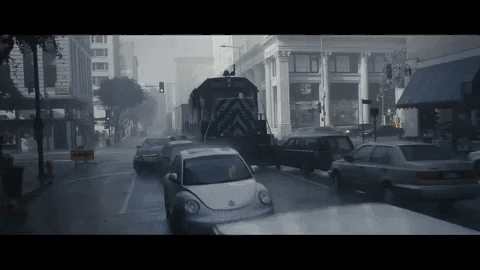
Revolutions, Marx said, are the locomotives of history.
‘Put the locomotive into top gear’, Lenin exhorted himself in a private note, scant weeks after October, ‘and keep it on the rails.’
But how could you keep it there if there really was only One True Way, one line, and it is blocked?
‘I have gone where you did not want me to go.’
“ In 1924, even as the vice closes around the experiment, Trotsky writes that in the world he wants, in the communism of which he dreams – a pre-emptive rebuke to the ghastly regime of bones to come – ‘the forms of life will become dynamically dramatic. The average human type will rise to the heights of an Aristotle, a Goethe, or a Marx. And above this ridge new peaks will rise’.
The specifics of Russia, 1917, are distinct and crucial. It would be absurd, a ridiculous myopia, to hold up October as a simple lens through which to view the struggles of today. But it has been a long century, a long dusk of spite and cruelty, the excrescence and essence of its time. Twilight, even remembered twilight, is better than no light at all. It would be equally absurd to say that there is nothing we can learn from the revolution. To deny that the sumerki of October can be ours, and that it need not always be followed by night.
John Reed interrupts his own narrative of Prokopovich’s speech to the Duma deputies, prevented by exasperated sailors from martyring themselves. ‘It is beneath our dignity to be shot down here in the street by switchmen,’ he records him saying.
Then: ‘What he meant by “switchmen”, I never discovered.’
Louise Bryant, who was also present, likewise noted the odd word. ‘Just exactly what he meant by that was too much for my simple American brain.’
There is a probable answer in an unlikely place.
In 1917, Chaim Grade was a young child in Vilna, Lithuania. Much later, when he had become one of the world’s leading Yiddish writers, in the glossary to the English translation of his memoir Der mames shabosim – My Mother’s Sabbath Days – he records the following:
Forest Shack: Term for the switchmen’s booths along the railway tracks in the vicinity of Vilna. Before the Revolution of 1917, the area around the Forest Shacks was the clandestine meeting place for the local revolutionaries …
A nickname from a meeting place. It seems likely that the word Prokopovich deployed as epithet was a disdainful term for ‘revolutionaries’.
Prokopovich had been a Marxist. His move to liberalism paralleled that of many other heretics infected with so-called ‘Economism’, as well as that of the ‘Legal Marxists’. There was a kind of bleak rigour to their stageist dogmas, in which the epochs must succeed one another perforce, like stations along a line.
Little wonder he would scorn the Bolsheviks as switchmen. What could be more inimical to any trace of teleology than those who take account of the sidings of history? Or who even take to them?
The revolution of 1917 is a revolution of trains. History proceeding in screams of cold metal. The tsar’s wheeled palace, shunted into sidings forever; Lenin’s sealed stateless carriage; Guchkov and Shulgin’s meandering abdication express; the trains criss-crossing Russia heavy with desperate deserters; the engine stoked by ‘Konstantin Ivanov’, Lenin in his wig, eagerly shovelling coal. And more and more will come: Trotsky’s armoured train, the Red Army’s propaganda trains, the troop carriers of the Civil War. Looming trains, trains hurtling through trees, out of the dark.
Revolutions, Marx said, are the locomotives of history. ‘Put the locomotive into top gear’, Lenin exhorted himself in a private note, scant weeks after October, ‘and keep it on the rails.’
But how could you keep it there if there really was only one true way, one line, and it is blocked?
‘I have gone where you did not want me to go.’
In 1937, Bruno Schulz opens his story ‘The Age of Genius’ with a dizzying rumination on ‘events that have no place of their own in time’, the possibility that ‘all the seats within time might have been sold’.
Conductor, where are you?
Don’t let’s get excited …
Have you ever heard of parallel streams of time within a two-track time? Yes, there are such branch lines of time, somewhat illegal and suspect, but when, like us, one is burdened with contraband of supernumerary events that cannot be registered, one cannot be too fussy. Let us try to find at some point of history such a branch line, a blind track onto which to shunt these illegal events. There is nothing to fear
By the Forest Shacks are the points, the switches onto hidden tracks through wilder history.
The question for history is not only who should be driving the engine, but where. The Prokopoviches have something to fear, and they police these suspect, illegal branch lines, all the while insisting they do not exist.
Onto such tracks the revolutionaries divert their train, with its contraband cargo, unregisterable, supernumerary, powering for a horizon, an edge as far away as ever and yet careering closer.
Or so it looks from the liberated train, in Liberty’s dim light.